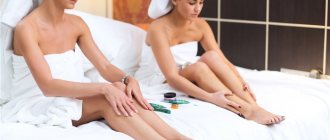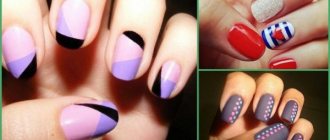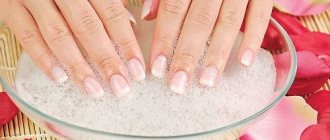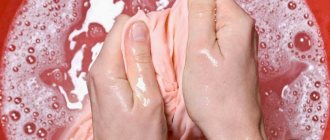One of the common manifestations of hyperhidrosis is sweating of the feet. How to get rid of this disease, which can ruin the life of any person? After all, hyperhidrosis of the legs is characterized not only by profuse sweating, but also by an unpleasant, pungent odor that follows the patient everywhere.
Many people who experience severe sweating of their feet are afraid to stop by once again, as everyone will see their wet socks and smell an indecent smell. For the same reason, they feel uncomfortable trying on shoes in a store or changing shoes in the locker room when getting ready for training. People suffering from hyperhidrosis of the feet have two options: either come to terms with the disease and adapt to the existence of the problem, or get rid of sweating with the help of folk remedies and medications.
Why do my feet sweat and smell bad?
There are several reasons for profuse sweating of the feet:
- poor foot hygiene;
- closed, tight shoes made of synthetic materials that prevent air from reaching the skin of the feet;
- synthetic socks that do not absorb moisture;
- sports training or work during which a person remains in a standing position for a long time;
- nervous overstrain;
- fungal diseases of the foot;
- disruptions in the functioning of the endocrine and nervous systems, tumors and infectious diseases.
It's no secret that sweaty feet begin to emit a foul odor after a while. Why does this happen, since sweat has almost no smell? It turns out that it’s all about bacteria, numerous colonies of which populate the skin of our body.
Being under continuous influence of sweat, the skin of the feet becomes very soft, the stratum corneum is destroyed and becomes an excellent feed for microorganisms that feed on dead epithelium and sweat.
Sweat mainly contains water, and only a small fraction, only 1%, is occupied by various substances secreted by the human body. They are broken down by bacteria, during which isovaleric acid is formed with a sharp, specific odor. It is the results of the vital activity of microorganisms that give socks and shoes an unbearable odor.
Foot or nail fungus present on the skin can enhance the “aroma” of sweaty feet. In patients with diabetes, due to poor blood circulation, the legs are often covered with wounds and ulcers, which also increases the disgusting smell.
Causes and signs of hyperhidrosis
The feet are an area of increased sweat production. This phenomenon primarily affects men. They can secrete up to 200 ml of sweat per day from the sweat glands on their feet. This condition of male legs is explained by the large number of sweat glands on the feet. Closed men's shoes, in which they spend a lot of time, contribute to sweating.
But the problem of sweating feet is not only for men. Both women and even children suffer from it. At an early age, the causes of severe sweating of the feet may be rickets, a pathology associated with a lack of vitamin D in the body. In adolescents, the feet and hands sweat during the period of hormonal changes in the body. Also, the causes of childhood sweating can be cardiovascular pathologies, parasitic infestations, excess weight, instability of the nervous system, endocrine disorders and other diseases.
One of the reasons for bad foot odor is the wrong material of shoes and socks. Synthetic fabrics do not allow the feet to breathe. Socks and shoes quickly become wet and cause wet, constantly cold and foul-smelling feet.
Natural foot sweating can be complicated by excessive sweating. This condition is called hyperhidrosis. Sweating is a physiological function of the sweat glands, which maintains the temperature balance of the body and promotes the removal of toxins, wastes and metabolic products from it. At high ambient temperatures or high physical activity, sweating increases and this is considered normal. But if there are no prerequisites for excessive sweating, then this is considered a sign of hyperhidrosis. If it is noted over the entire surface of the body, it is called generalized hyperhidrosis. If your feet sweat a lot, plantar hyperhidrosis of the feet is diagnosed.
Signs of foot hyperhidrosis:
- feet sweat not only in the heat, but also at low temperatures;
- sweating is observed not only in shoes made of leatherette, but also from natural and eco-leather;
- feet are wet not only in winter, but also in summer shoes;
- sweating and foul odor remain even after washing your feet;
- new shoes almost immediately acquire an unpleasant odor;
- the heavy odor from feet and shoes remains even after treatment with antiperspirants and deodorants. This is due to a change in the acidic composition of the skin on the feet, which leads to the development of fungal diseases and the creation of a favorable environment for the development of bacterial flora.
Folk remedies for sweaty feet
Alternative medicine, based on the centuries-old experience of famous healers, has accumulated many different recipes to reduce sweating of the feet and the disgusting odor that accompanies it. Herbs, foods, seasonings and other substances are used for treatment.
Powders
It's no secret that your feet need to be kept warm and dry. Therapeutic powders can dry and disinfect the skin of the feet and protect it from getting wet. Talc, starch, and boric acid are suitable for these purposes. Here are some recipes for making powders for sweaty feet.
- Crushed oak bark or natural alum, crushed to a powder, is poured into socks for a while, reducing sweating and deodorizing the skin of the feet.
- Table salt can be mixed with starch and powdered with the mixture on the feet. Starch will absorb moisture, and salt will destroy the smell.
- Combined powders are effective in combating sweating, for example, 9 parts of starch are combined with 1 part of talc.
- Boric acid is made into a fine powder and sprinkled on your feet at night. Sweating returns to normal within a few weeks.
Treatment with powders is usually carried out on clean, dry feet. After applying the powder to the skin, you should not press it down or pat it down, since the effect is achieved precisely because of the looseness of the powder. Oak bark powder should be applied at night, and talc and boric acid can be used during the daytime.
Baths
One of the most common remedies used to reduce the activity of the glands is foot baths. Of course, such water procedures are not able to completely get rid of hyperhidrosis, but it is quite possible to reduce sweating and unpleasant odor with their help. In addition, baths with medicinal herbs can easily cope with rough skin, calluses, and help prevent fungus.
Bath treatment is carried out every day before bedtime. The active elements in such procedures are usually oak bark, sage or chamomile inflorescences, which have an antibacterial and drying effect. Here are some tips on how to set up a foot bath.
- To prepare a bath with chamomile flower, you need to take 7 tbsp. l. dried inflorescences and brew 2 liters of boiling water. Then, once the broth has infused, add it to the bath container and immerse your feet up to the ankles. Keep your feet in the broth until the water becomes cold. By taking such procedures for a week, you can achieve a significant improvement in your health.
- A vinegar bath is not only effective, but also very easy to prepare. The only limitation when using it is the absence of wounds and cuts on the surface of the skin of the feet. Vinegar is added to a container of warm water, where the feet must be immersed and left for 20 minutes.
- Baths with oak, willow, and birch bark will help get rid of hyperhidrosis. For example, such a simple recipe. Take common oak bark in the amount of 1 tbsp. l., brew 1 cup of boiling water and leave for an hour. Then for every liter of water needed to prepare the bath, add 1 tbsp. l. honey and 10 g of propolis tincture. The water in the bath should be warm and comfortable, and the procedure lasts more than 20 minutes. By taking these foot baths for 10 days, you can easily get rid of severe sweating of the feet and the disgusting odor that accompanies it.
- A foot bath can be made using regular black tea. Strong tea contains tanning agents, which, when contacted with the skin, tighten pores and reduce sweating. To arrange such a bath, you need to brew 2-3 tea bags in a liter of water and pour into a container. The procedure can be done at any time of the day.
In any bath with medicinal herbs, water can be replaced with milk or fermented baked milk. This will further enhance the positive effect. After the procedure, dry your feet and apply powder.
Decoctions
By taking medicinal decoctions and infusions internally, you can also effectively combat foot hyperhidrosis. Of course, it is better to combine decoctions with foot baths and powders. Together, these remedies will help you get rid of the disease faster.
Such a useful plant as medicinal hyssop has long been known for its healing effects. To prepare a decoction with hyssop, you need to take 2 tsp. dried leaves and flowers and brew with boiling water. You can drink hyssop tea as many times a day as you like for a month.
An infusion of nettle and sage is very useful for hyperhidrosis. 1 tbsp. l. dried herbs are brewed with boiling water and taken orally for a month.
Folk remedies are distinguished not only by their effectiveness, but also by their safety. They can be used to prevent disease, improve blood circulation, tone up and improve the condition of the skin of the feet.
With the help of furatsilin
Furacilin is an antibacterial agent widely used in surgery and burn medicine. Since the source of the unpleasant odor in foot hyperhidrosis is bacteria inhabiting the skin, treating problem areas with furatsilin has a positive effect. By destroying microorganisms, the medicine helps get rid of the disgusting odor and reduce sweating of the feet.
With salt
Sea salt is considered an indispensable remedy for leg hyperhidrosis. It contains unique elements that improve blood circulation in the legs, relieve tension and fatigue, reduce swelling and eliminate the disgusting smell of sweat.
To prepare the bath, take a glass of sea salt and dissolve it in 2 liters of cool water. Dip your feet up to your ankles in a container of liquid and take the procedure for 15 minutes. Then, wait until the skin of your feet dries and treat your feet with antibacterial cream.
After such a foot bath, a person feels relaxed and calm, so it is better to take it at night. Along with sea salt, you can add a little essential oil to the bath.
How to get rid of odor
It is impossible to get rid of the disgusting odor that sweaty feet emit without reducing sweating and suppressing the growth of bacteria on the skin of the feet. Therefore, you should not neglect the rules of personal hygiene. You should wash your feet twice a day using antibacterial soap. Wear knee socks and socks made exclusively from natural materials, and take care of your shoes.
To combat the smell, you can use various powders that are used before going outside.
It is necessary to use antiperspirants and deodorants. An effective remedy to reduce foot sweating is 20% antiperspirant Drizol, which perfectly stabilizes sweating and inhibits the growth of bacteria.
If antiperspirants and powders do not help, when deciding how to get rid of sweaty feet, you can try iontophoresis sessions. During the procedure, the patient's feet are immersed in an electrolyte, through which a weak discharge of electricity is passed. Treatment is carried out every other day for 20 minutes until sweating becomes minimal. For prevention, maintenance procedures are prescribed once a month.
Cosmetical tools
If excessive sweating is purely a cosmetic problem, it can be eliminated using the following means:
- Dry Dry. Foot deodorant designed for daily use. The manufacturer of the product is Sweden, whose cosmetics are valued as high quality throughout the world. The Dry Dry series also includes ointment for feet, spray for insoles and shoes, providing deo-control.
- Gewol. Cosmetic series for foot care. It will help get rid not only of excessive sweating, but also of unpleasant odor. The manufacturer recommends using Gevol series lotion, balm, and powder (talc) at the same time. Prices are usually cheaper when purchasing the whole “Increased Sweating” complex.
- 911. This cosmetic series also contains a cream for sweating feet - Nepotin. Has anti-inflammatory, drying effects. The cream contains natural ingredients, so it has virtually no contraindications - green tea extract, sage, linden, and other herbs.

You can purchase these products in special cosmetic stores and on the manufacturers’ official websites.
Advice! Before using any of them, you must wash your feet thoroughly. To do this, you can use laundry or tar soap. You can treat your feet before applying antiperspirants and deodorants with a solution of furatsilin and salicylic acid.
Treatment of sweaty feet with pharmaceutical drugs
Alternative medicine is not always able to cope with the problem of excessive sweating of the feet. In the later stages of the disease, they are replaced by medications, which are convenient and effective. They are available in the form of aerosols, ointments, creams and are sold in any pharmacy without a doctor's prescription.
Medicines for hyperhidrosis are based on formaldehyde. This substance disinfects, dries and deodorizes the skin of the feet. All drugs based on formaldehyde dull the action of the sweat glands, thereby reducing the amount of sweat produced. The effect of using the medicine lasts up to 1 month.
Formagel
This medication for foot hyperhidrosis is a clear gel. The drug for sweating feet is applied to clean, dry skin of the feet, after which it is covered with a thin protective film. After 30 minutes, your feet should be rinsed with cool water. The effect after one procedure lasts at least 3 weeks. If after the first treatment the sweating has decreased slightly, you can apply the drug again until the desired result is achieved.
Teymurova paste
Teymurov's paste is a long-tested remedy for foot hyperhidrosis, which, due to the advent of newer drugs, has recently faded into the background. Along with antiseptic components, the medicine contains glycerin and mint oil. Thanks to these additives, the drug does not dry out the skin and does not cause peeling.
Apply the product to dry, clean skin of the feet. It is advisable to remove the paste after half an hour, rinsing with water. Treatment should be repeated for a week, then take a break for a month.
Formidron
This remedy for sweaty feet is considered the most powerful of the above drugs. Since formidrone can cause skin irritation, it is not recommended for frequent use. Once a day, apply the medicine to the feet using a cotton swab. Application of the drug may be accompanied by burning and tingling.
Prevention of hyperhidrosis
To reduce the problem of sweaty feet, it is necessary to prevent the development of hyperhidrosis. To do this, just follow a number of simple recommendations:
- Practice regular foot hygiene and don’t forget to change your socks and tights.
- It is advisable to treat the insoles in shoes with antiseptic compounds.
- It is necessary to dry wet shoes promptly.
- It is recommended to use antiperspirants for feet and special powders with an antibacterial effect.
If the problem cannot be solved using home methods, then you should definitely seek advice from a competent specialist.
Article Rating









